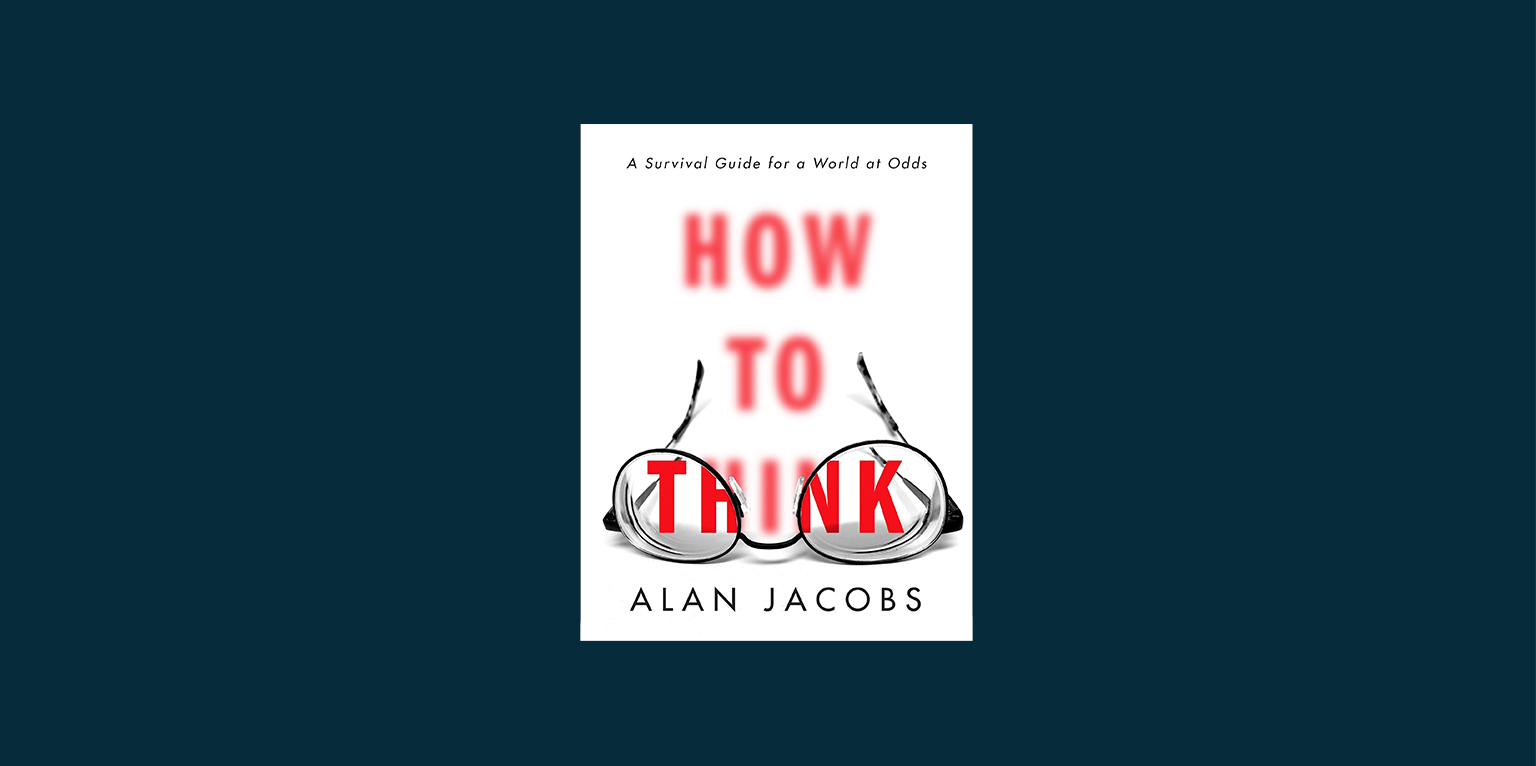
Why We Can’t Think
Spend five minutes on social media and you’ll understand why we need the book How to Think by Alan Jacobs. Not only do people treat others differently online than they do in person, but carefulness in online speech is rare. So much of the fruit we see online is ungodly–often creating fear and stirring up anger towards our neighbor. But the symptoms of outrage and division on spaces like Twitter only reveal a deeper problem. As Jacobs says, “we suffer from a settled determination to avoid thinking” (17). Before we learn how to think from Jacobs, he tells us why we can’t.
We are complex creatures, but one common problem we face when it comes to thinking is speed. Jacobs divides thinking into two categories. There is “intuitive thinking” and “conscious decision-making” (16). We tend to spend the majority of our time doing intuitive thinking. These involve snap judgments and predispositions. Many of us have already decided if we agree with an article before we even finish it! Most of us don’t see this as a problem. Yet, the danger of only doing intuitive thinking is that we become like the fool who “takes no pleasure in understanding, but only in expressing his opinion” (Prov. 18:2).
Conscious decision-making is taking time for the pleasure of understanding. But it often only flips on in our brains when we sense a problem that needs to be addressed. Jacobs’ book is about conscious decision-making, or slow thinking. It’s the type of thinking that waits five minutes before responding (18), the type of thinking, Jacobs argues, that troubles us and tires us (17). Perhaps that’s why we don’t do it. Thinking takes too long. It requires patience. It requires listening and most of us don’t have time for that.
Why We Must Think
While we don’t make time for thinking, there are thousands of voices claiming to think critically. How do we evaluate what we’re taking in? Jacobs reminds us, “all of us at various times in our lives believe true things for poor reasons, and false things for good reasons…” (39). We’ve been wrong before, and we are currently wrong about different ideas. Can we learn and grow? Not if we don’t think.
Christians of all people are to be people of charitable understanding. So when we disagree with someone we need to understand the best, most-fair-minded representation of their position. There’s a lot of heat being thrown around on social media, and not a lot of light. Christians give the benefit-of-the-doubt and seek to understand those that disagree with them, not destroy them. Christians seek to clarify, not to confuse–which means one way we help one another learn is by strengthening arguments we disagree with. Sadly, this type of charitable disagreement is hard to find.
Pastors of all people are charged to be gentle and must not be quarrelsome (1 Tim. 3:3). But again, we tend to play by different rules on social media. Pastors must not participate in “in-other-wordsing,” (106) where we critique what someone “meant” but not what they “said.” Shouldn’t pastors of all people be those who give the benefit of the doubt? Thinking, listening, and empathizing are all required to be “quick to hear, slow to speak, slow to anger…” (James 1:19).
How We Can Think
While all of How to Think is illuminating, Jacobs ends his book with a “Thinking Person’s Checklist” (155). The list alone is worth the price of the book, and I’ll highlight just a few points.
Jacobs encourages a posture of learning over debating. If we treat people like enemies to be conquered rather than humans to be understood, we hurt our own ability to think as well as the other person.
He also guides us away from people who “fuel the flames.” This advice is helpful both on social media and face to face. Some people just want to see the world burn.
Lastly, listen. Find someone you disagree with. If you’re Presbyterian, find a Baptist. If you’re charismatic, find a cessationist. If you’re complementarian, find an egalitarian, then listen. You may still disagree with them, but you will also learn a new perspective and learn to understand. You’ll also be less prone to caricature them.
Thinking is Hard
Thinking is hard work, and Jacobs is a proven guide to help us learn. So give your time, energy, and vulnerability to becoming a better thinker. It will take conscious effort and a settled conviction, but it’s worth it. If you choose to think, it means not doing everything spur of the moment and practicing patience. But you will know more, understand others better, and grow more as a result (151).

